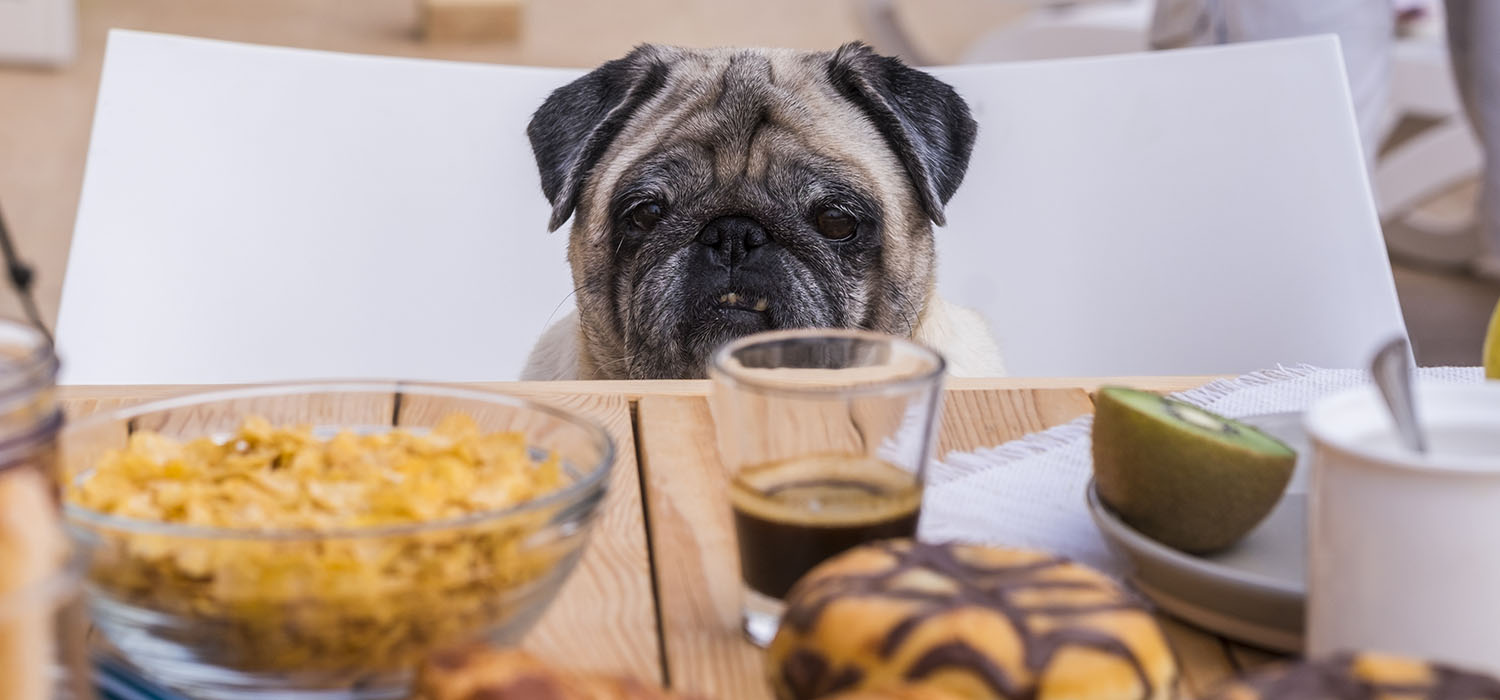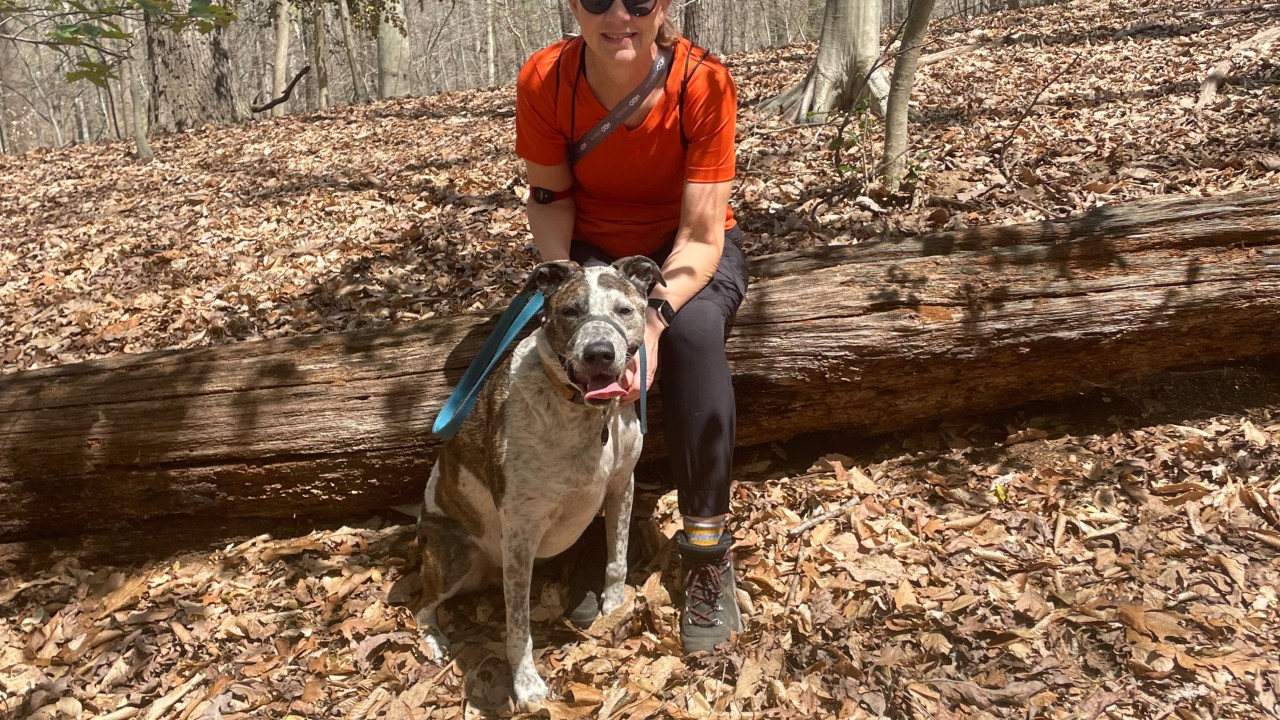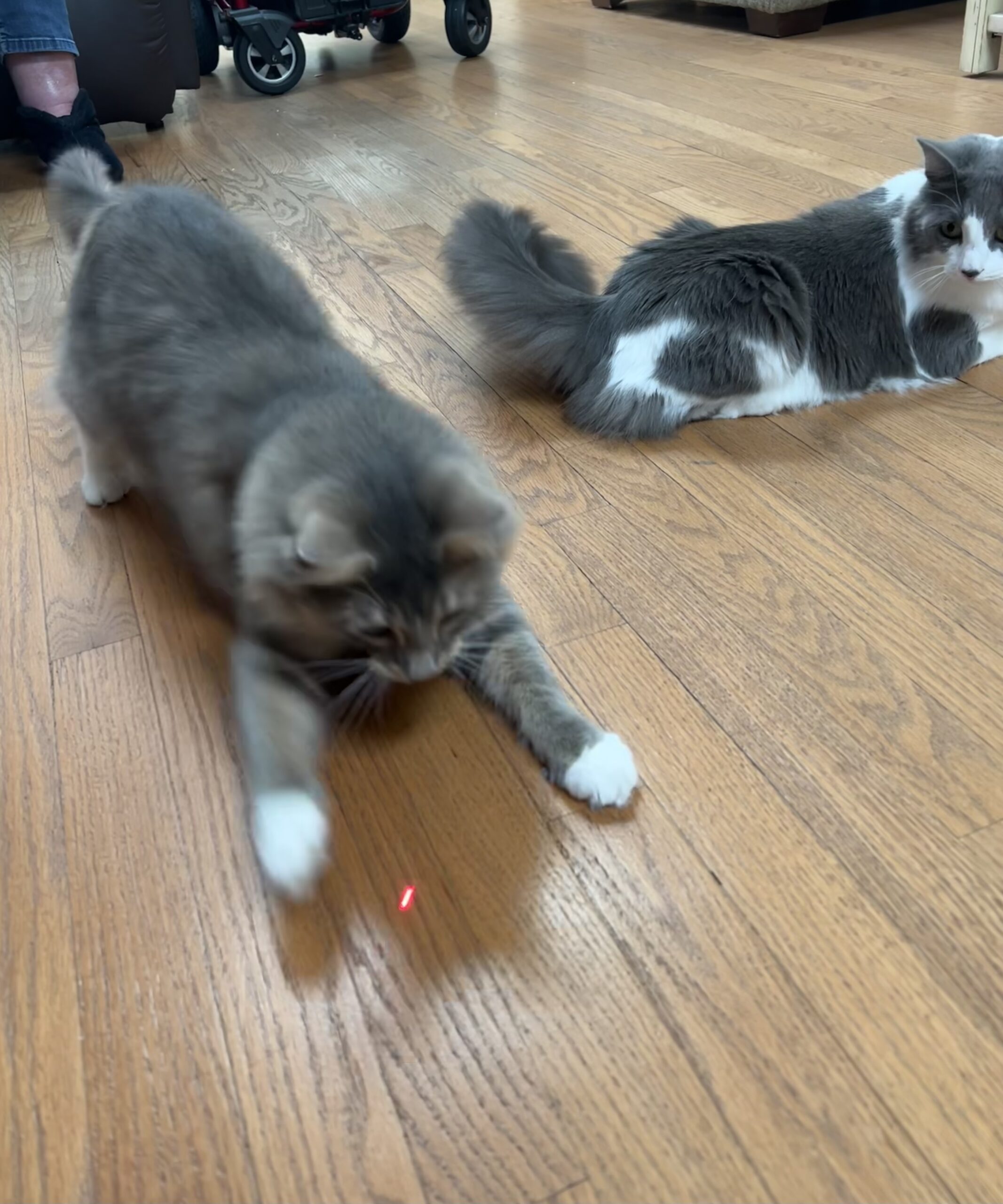Some common human foods and household items can be dangerous for pets. Ensure you are keeping your pets safe at home by steering them clear of these items:
Human Foods to Avoid
It’s important for pet owners to remember that some common human foods are not recommended for pets. Popular snacks and treats for humans can disrupt a pet’s balanced diet and may cause serious health risks, including digestive upset, obesity, and more severe, even fatal, issues.
Foods to keep away from cats and dogs include:
- Sweets and baked goods: Candies, gum and baked goods often contain xylitol, an artificial sweetener linked to liver failure.
- Chocolate, Coffee and Caffeinated Beverages: These items contain methylxanthines; substances which are found in cacao seeds. Methylxanthines can cause vomiting and diarrhea, panting, hyperactivity, abnormal heart rhythm, tremors and seizures. The toxicity varies depending on the type of chocolate, the size of the pet, and the amount they ingested. It’s best to keep all chocolate and caffeinated beverages away from pets.
- Common Snacks: Grapes, raisins, nuts (especially macadamia nuts), and salt-heavy snacks like potato chips should be kept away from pets. In addition, grapes and raisins can lead to kidney failure. The oils and fats in nuts, and the salt on other snacks, can cause extreme digestive upset and lead to much more serious health risks.
- Table scraps: Foods that are high in calories and fat can contribute to obesity and pancreatitis; a potentially life-threatening inflammation of the pancreas caused by high-fat diets. Think twice before slipping your dog even small amounts of leftovers under the table.
- Meat bones: Although it may seem like an obvious treat to give dogs, leftover meat bones are hazardous. Bones could choke pets, or splinter and puncture a dog’s digestive tract.
- Alcohol: Alcoholic drinks, such as beer, wine and liquor, are all toxic to pets. These beverages can cause a variety of negative health issues and should never be given to cats or dogs.
- Common recipe ingredients: Many recipes include onions, garlic, and chives – all of which can be harmful to pets if ingested. These vegetables and herbs can cause gastrointestinal irritation and could lead to red blood cell damage.
Keep Pets Away from These Household Items
Common household items, including cleaners, plants and holiday decorations, can pose a threat to cats and dogs.
Pay special attention to the following if you have a pet in the house:
- Decorations: When decorating for a holiday, make sure to place decorations well out of reach of pets. New additions to the home, like trees and tinsel, can catch the eye of pets, and, if consumed, can cause intestinal blockages that may require surgery. If pets chew on the cords of electric lights, it can cause burns, so always keep lights out of their reach, too. In addition, certain holiday plants, such as pine needles, holly, mistletoe and poinsettias, are toxic for cats and dogs.
- Plants: Many common household or garden plants are poisonous for pets. This warning is particularly important for cat lovers, as cats are more likely to jump to reach plant holders and try to munch on greenery. Many shops section off pet-friendly plants. Before bringing home a new flower, fern or shrub, be sure it’s not toxic for pets.
- Household Cleaners: The household cleaners we often rely on can be toxic to pets, and it is important to follow cleaning instructions on the label. This may include letting areas dry before allowing pets to enter or rinsing the surface you are cleaning with water. Always make sure that cleaning products are safely stored away from curious pets.
Be aware that some cleaners can cause an allergic reaction in cats and dogs. Strong scents and residue left behind can cause skin irritations, watery eyes and even difficulty breathing.
- Medicines: All medicine, including pharmaceuticals and over-the-counter, should be stored where pets cannot access them. This includes medications prescribed to pets, too.
- Toys and Batteries: Small items of any sort, but especially toys and batteries that are likely to be left out on the ground where pets can reach them, are a choking hazard for cats and dogs. If ingested by a pet, these items can also lead to major health issues.
www.aaha.org/your-pet/pet-owner-education/ask-aaha/Household-Toxins/



